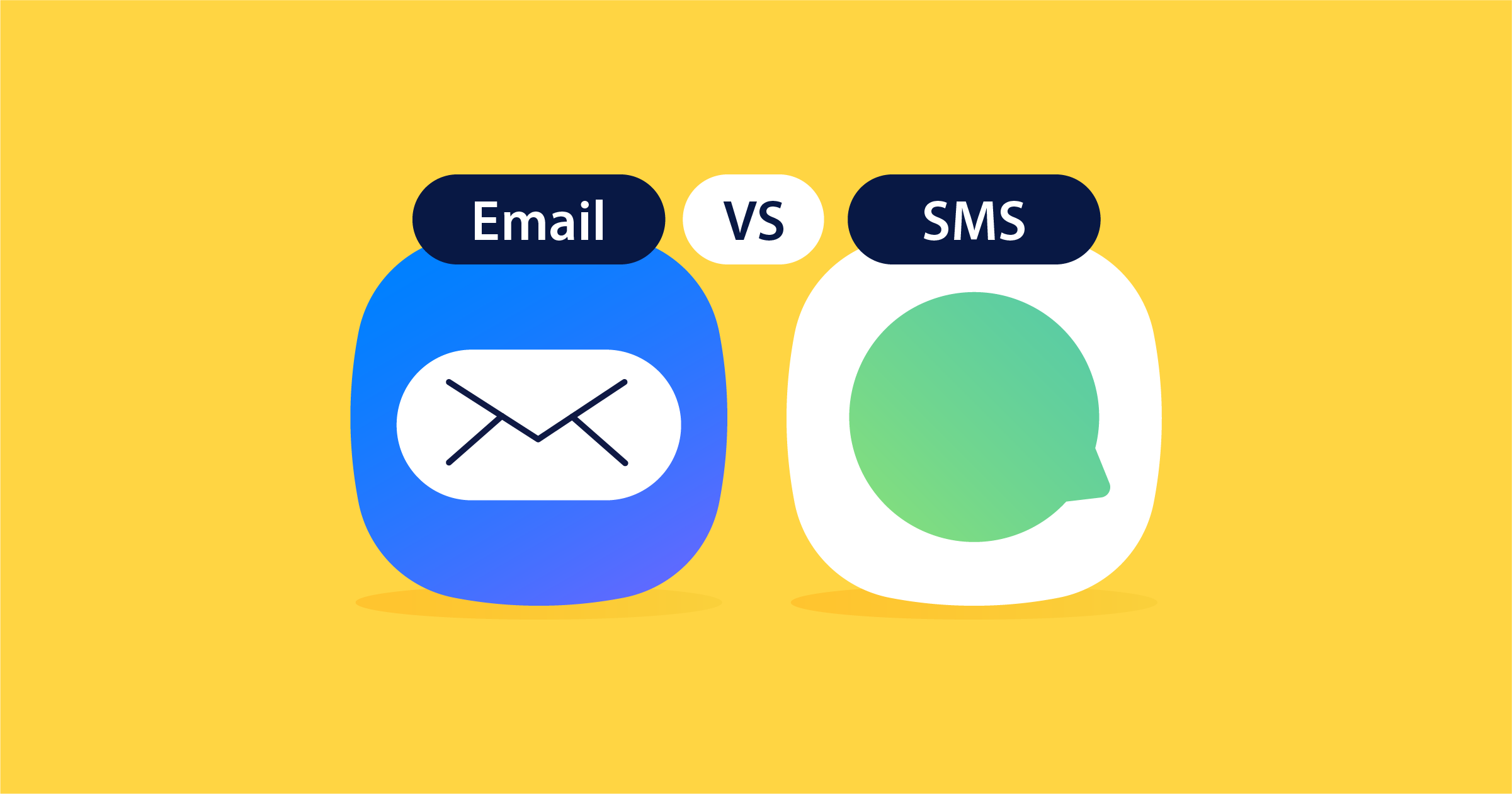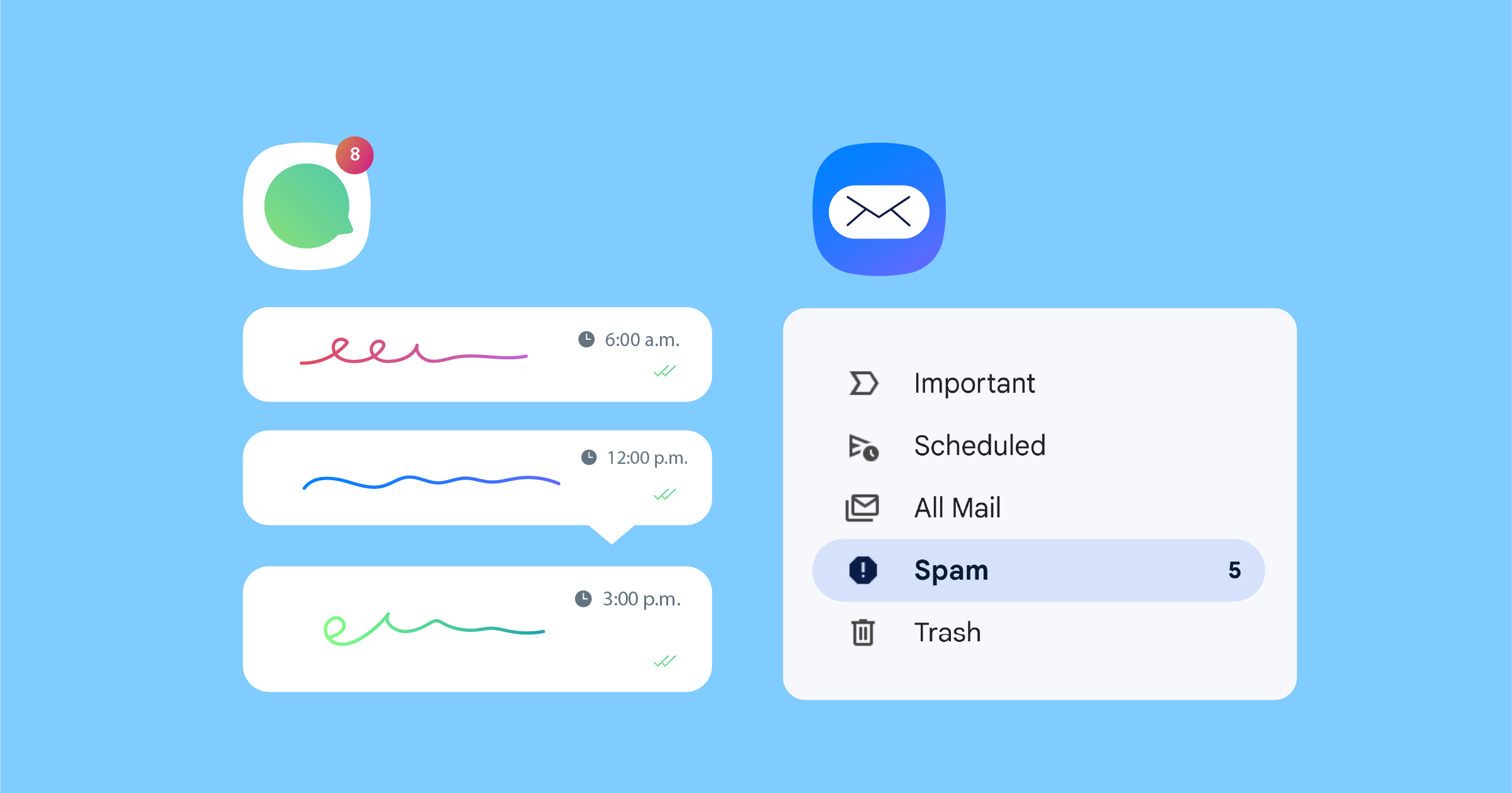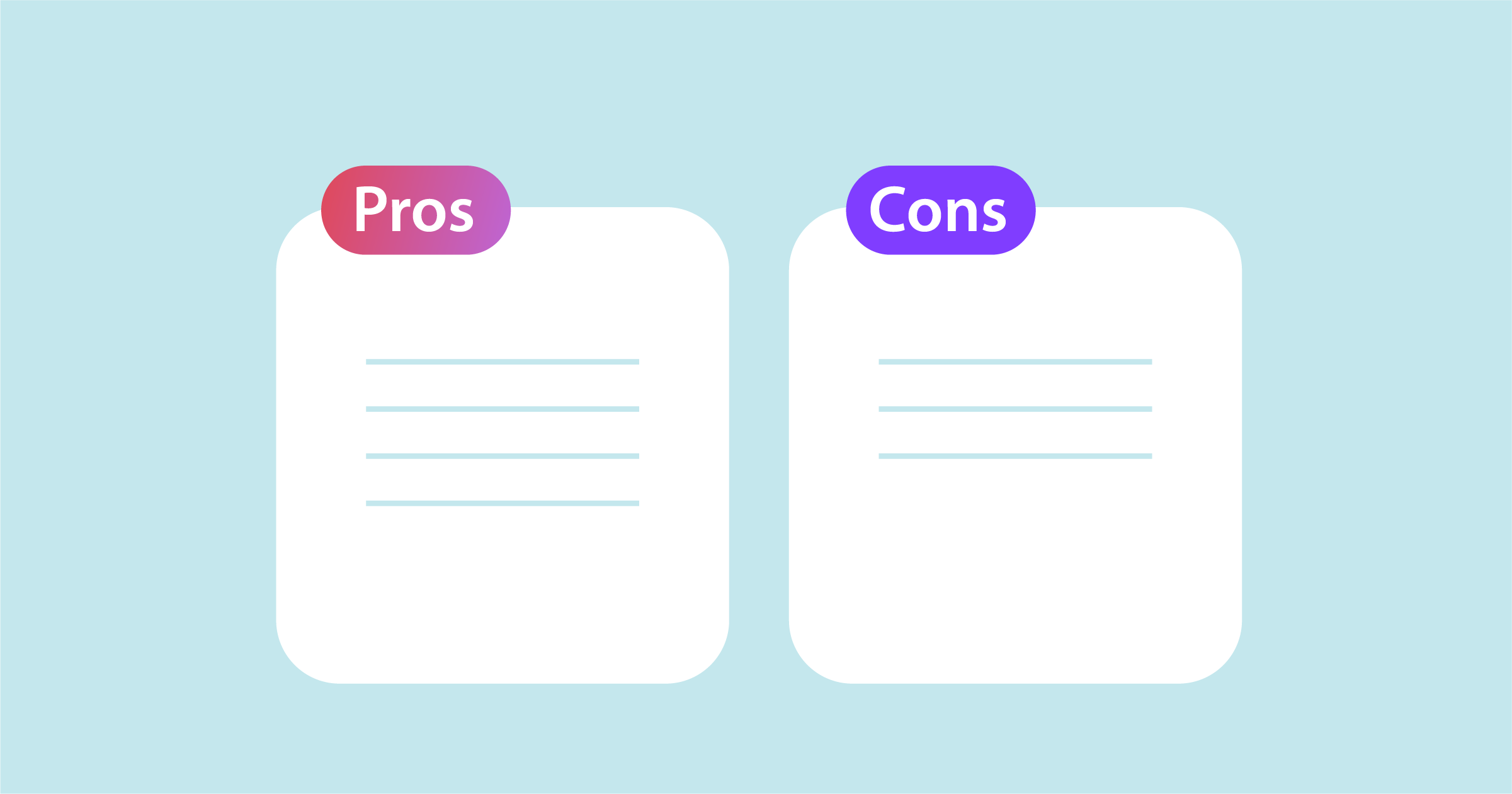SMS Marketing Vs. Email Marketing: What is the Difference
Published: Mar 31, 2023

SMS marketing and email marketing are both very popular channels for reaching out to customers, promoting your brand, and driving sales. But there are some key differences between these two digital marketing heavyweights. Let’s dive in and see which one is right for your business goals, marketing experience, budget, and, of course, customer preferences.
SMS Vs. Email Marketing: The Basics
When it comes to SMS vs email, the latter has long been one of the most popular marketing channels, relied on by marketers and companies to get their message out quickly and cheaply. Its popularity and wide use, however, have become one of its biggest drawbacks. We receive tens if not hundreds of promotional emails daily promising us leaner bodies, better lives, and promoting the fifth not-to-miss sale this week.
A lot of it, to put it mildly, is fluff, and we get really good at tuning it out.
The worst part is that important updates from services or products we use can get lost in all the noise and clutter of our inboxes. Not necessarily because you are sending too many emails to your customers (which if you are, stop), but because others are sending a lot of emails to your customers. Everyone’s got an email address, and everyone’s out to get them.
But with the rise of mobile phones, SMS is rapidly gaining in popularity as not just an alternative to email, but as a full-fledged marketing channel that has its own great advantages and industry best practices. We all have mobile phones now, meaning your customers can receive an SMS anywhere they are, at any time. One caveat—we don’t recommend sending an SMS outside normal business hours unless it’s an important alert or reminder (more on that later).
SMS Marketing Pricing
We use a pay-as-you-go pricing model, meaning we charge per sent message. No monthly or sign-up fees. SMS marketing costs vary depending on your destination.
Let’s do an experiment: Open your email inbox—the one you use to sign up for all those email lists and newsletters you never read—and see what’s there. See how many you’ve even opened, and how many you’ve actually responded to.
Now open the SMS messages on your phone; what do you see? Chances are there’s going to be a whole lot less spam and a lot more conversations with your friends, family, and businesses you actually care about. The power of SMS marketing is that it occupies the same space as those we reserve for those closest to us.

Breaking Down Text Vs. Email Marketing Campaigns
When it comes to comparing SMS marketing campaigns vs email, each has its own advantages, disadvantages, and unique factors that should help you decide which is best to use in which scenario. And keep in mind: no matter which you prefer, you alway shave the option of sending an email to SMS.
Message Length
While it’s not recommended to send long marketing emails with large attachments to your customers, the body of the email itself has no length limits.
SMS messages, on the other hand, have a character limit of 160, meaning that marketers need to be brief and to the point. This is not a disadvantage of SMS marketing; it is a strength rather than a limitation. Use SMS as a way to tell a customer that an item they’ve been watching is back in stock or reduced in price or to send SMS reminders.
You can also use MMS as a communication channel, which can include images or other media like email.
Open and Response Rates
SMS messages have a much higher open rate compared to emails—its average open rate is 98%, while emails have an open rate of just around 10-20%. The majority are never opened.
Similarly, SMS messages have a response rate of around 40–50%, while emails boast around 4-6%, depending on study. While an average SMS is responded to within 90 seconds, an email takes 90 minutes, if at all. Since your recipients are instantly notified when receiving a text, text messaging is the more direct route to customers.
The short length of SMS messages also encourages more click-through rates as recipients see the link, whereas most don’t even make it all the way to the bottom of an email.
Scheduled Sending and Automation
You can schedule the automated sending of SMS just as you can do with email. If you don’t have much experience with this, many SMS platforms make it easy to schedule to send your SMS messages at a certain time or as an automated response to a certain action. For example, you can send an automated SMS to your customer once their order has shipped by integrating your systems.
SMS messages are generally considered more immediate and urgent compared to email messages, which are often viewed with much less urgency and significance. This means that SMS messages may be more effective for time-sensitive promotions, while emails may be better for longer-term campaigns.
When you want immediacy, SMS is the way to go. Precisely because SMS messages are so immediate, you don’t want to disturb and annoy your customers when they are resting or sleeping. So, no late evening or early morning messages, unless it’s an important SMS alert or reminder.
Opt-in Requirement
In many countries, businesses are required to get explicit opt-in consent from customers before sending SMS marketing messages. This means that even if a customer has provided you with their mobile phone number, they must also agree to receiving SMS from you before you can text them. Email marketing, on the other hand, generally does not require explicit opt-in consent, but businesses must still provide an option to opt out or unsubscribe.
As a marketer or business owner, you can incentivize opt-ins by running small promotions or sending discount codes by SMS to those who provide their number and consent.

Personalization
It’s true that emails are more customizable than SMS messages due to length and multimedia limitations. But, modern business text messaging providers like Dexatel offer a lot of personalization options that aren’t just limited to customer names. You can personalize every message based on your customers’ interests and demographic profiles. And with most smartphones today supporting MMS, you can also include your company logo and other branding visuals in your messages.
Additionally, both SMS and email offer analytics for you to measure your campaign effectiveness, see how many people took an action, and adjust your messages accordingly.
Cost
SMS marketing is one of the most cost-effective ways to reach many people at once. While pricing varies by provider, the cost of a mass texting campaign differs by provider, country, and number of texts being sent. Comparatively, although email marketing costs are typically less expensive, they can vary depending on the size and type of your campaign and how often you are sending to how many people. The prices can range from a few dollars for a simple list-send to thousands a month for advanced functionality.
A bulk SMS service provider can offer attractive pricing that rivals that of email and gives more ROI bang for your buck. Additionally, you can also use Viber Business messages and WhatsApp Business API for maximum reach and customer engagement on their preferred platforms.
Use it, But Don’t Abuse it
The reason SMS marketing is so great is that it’s used in moderation. Customers can and will opt out of receiving communications from you if you needlessly bombard them with daily notifications. It may sound strange coming from an SMS provider that earns money on every message you send, but we are anti-spam through and through and encourage practices that will keep both you and your customers happy.
Use SMS marketing for:
Brand awareness
Limited or special offers
Urgent updates
Appointment reminders
Shipment tracking
Personal alerts
Use email marketing for:
Multiple product promotions
Company updates
Newsletters
Long-form content
Purchase confirmations

Advantages of SMS Marketing Over Email
1. Immediate
Deliver important and time-sensitive text messages directly into your customers’ palms, even when they are not checking their emails.
2. No Internet Required
Your customers don’t need internet access or even a smartphone to send or receive an SMS.
3. Higher Engagement
Recipients are much more likely to engage with a short message and call to action in an SMS, while billions of emails end up in spam folders.
4. Memorable
SMS is not only concise and straightforward, but you can also use a memorable SMS short code that your customers can text.
5. Conversational
Your customers are people, and with SMS, you can send essential information in a personal and approachable manner. And remember, SMS is a two-way channel, meaning you can hold a conversation and answer questions just as quickly as they’re asked.
FAQ About SMS Vs. Email Marketing
Which is Better: SMS Marketing or Email Marketing?
There is no clear winner; each has its place and purpose in a well-thought-out marketing strategy. Sometimes, SMS is the clear choice. Other times, email is the better way to go. And sometimes a combination of both SMS and email marketing can be a powerful duo.
If timeliness is important, then SMS marketing wins. It works best for limited-time offers, exclusive promotions, alerts, and reminders.
Which Marketing Method is Right for Your Business?
SMS marketing and email marketing have different strengths and weaknesses. SMS messages are more immediate and have higher open and response rates, while email messages can be longer and more detailed. Businesses should consider the nature of their promotion and the preferences of their target audience when deciding which channel to use.
What is the Difference Between SMS and Email Marketing?
The main difference between SMS and email marketing is the channel used to communicate with customers. SMS marketing involves sending text messages to mobile phones, while email marketing involves sending promotional messages to email addresses.
